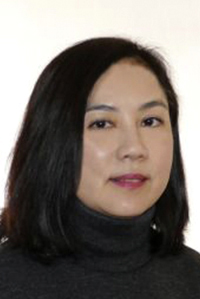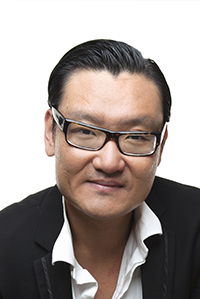Part I:
The JC A-Connect School Support Programme:
Lessons learned and the way forward
Abstract:
In view of the increased number of students with ASD in mainstream schools, the JC A-Connect (School Support) has been promoting the non-governmental organisation (NGO)–school collaboration model in schools to provide group training for the students with ASD to enhance their social skills, and building the capacity of the key stakeholders since 2015. Dr. Kathy Wong will share with us some of the key findings and lessons learned from the 8 NGOs and 510 primary and secondary schools participated in this Programme in Hong Kong.
Speaker:

Dr Kathy Wong
Project Director (School Support)
Principal Lecturer,
Department of Psychology, HKU
Part II:
The JC A-Connect School Family Programme:
Preliminary Research Findings
Abstract:
Adaptation and Evaluation the World Health Organization - Caregiver Skills Training in Hong Kong
Background Developmental delays/disorders in young children are identified as a public health priority. WHO and Autism Speaks co-designed a training program titled "WHO-Caregiver Skills Training" (WHO-CST) which aims at providing training for caregivers whose children are with possible symptoms of Autism spectrum disorder (ASD) symptoms and pervasive developmental disorders (PDD), so that they can learn better strategies on managing the daily lives of their children and foster better communication between the parent-children dyad. The WHO-CST Hong Kong (HK) was adapted to support families with children suspected of having autism spectrum disorder (ASD) while the families were waiting for a confirmed diagnosis.
Aim The HK research team adopted a sequential mixed methods study aimed to explore the adaptation process, using a formative qualitative method. It assessed the acceptability, feasibility, and perceived benefits of the WHO-CST, using caregivers’ qualitative and quantitative prepost feedback. We then tested the effectiveness of the WHO-HK using a randomized-controlled trial methodology (RCT).
Methods Data examined included (1) two consultation meetings with stakeholders; (2) a detailed review of translated and adapted WHO-CST HK materials by Master Trainees (MTs) (n=10) trained by WHO representatives; (3) need assessment focus group interviews with caregivers (n=15) of children with ASD; (4) prepost CST programme qualitative focus group interviews and quantitative evaluation (n=11); and (5) randomized-controlled trial. The main outcome included the Joint Engagement Rating Inventory (JERI) developed by experts in WHO to gauge how parents engage their children in a 10-minute video recording their dyadic interaction and behaviors in a defined play setting. A set of other measurements the caregiver's experience of using intervention skills and their enhancement of knowledges will also be measured.
Results Consultation with stakeholders suggested that the programme is acceptable for the local community, but the home visit and fidelity components were initially considered to be challenges for the feasibility and sustainability of the programme. Thematic analyses of the focus group interview with caregivers generated six subthemes from preprogramme focus group interviews and five subthemes from post programme focus group interviews. The programme was reported to be helpful for caregivers’ skills development and for aiding children’s verbal and social skills development. There was also improvement in caregivers’ mental health after completing the programme. The preliminary results of the RCT will be shared in the presentation.
Conclusion The prepilot evaluation findings of WHO-CST HK indicate that it is feasible and acceptable to implement the programme in a metropolitan area where families have busy working schedules. The results of the RCT seem promising but the effectiveness of the WHO-HK might be affected by the challenges raised by the COVID-19 during the implementation process. The findings indicate potential programme developments for supporting families in communities in high income countries.
This RCT practice has been registered at Chinese Clinical Trial Registry in July 2020 (No.: ChiCTR2000034585).
Speaker:

Dr Paul Wong
Project Director (Family Support)
Associate Professor,
Department of Social Work and Social Administration, HKU

